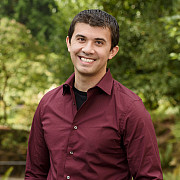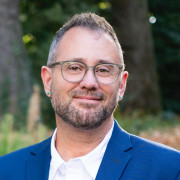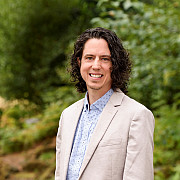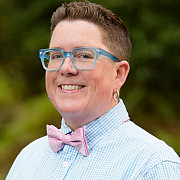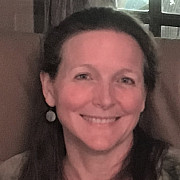Professional Mental Health Counseling - Specialization in Addictions
At the graduate school, students interested in pursuing a career as a mental health counselor can choose to formally specialize in the treatment of addictions.
The Professional Mental Health Counseling with specialization in Addictions (PMHCA) program trains future counselors in an integrated and comprehensive approach to mental health counseling.
Issues with substance use and addiction are highly prevalent. It is estimated that 40-80% of clients in treatment for mental health issues are also experiencing the effects of addiction-related problems.
Many mental health providers are not adequately trained in the area of addiction, despite its prevalence among those who seek mental health services. U.S. Surgeon Generals have spoken about the need to have a more comprehensive approach to addiction treatment in the country (e.g., The Surgeon General’s Report on Alcohol, Drugs, and Health, 2016). States are also tackling the growing need to have competent health care professionals who can address both mental health and addictions-specific care (e.g., Oregon Ballot Measure 110).
The PMHCA program faculty, students, and its graduates are leading this charge.
The PMHCA program prepares students to meet dual licensing and certification requirements for both professional mental health counselors and addiction counselors.
An Integrated and Social Justice Oriented Approach to Mental Health
Students learn a holistic and social justice oriented approach to counseling clients in the PMHCA program. All students are taught how to be ethical and competent mental health counselors. The program curriculum exposes counselors-in-training to a wide array of counseling theories and models of care to address mental health concerns.
In specialized coursework on addiction, students are taught the models of addiction treatment. Our students are taught how to address a wide range of addiction-related issues including process/non-substance related addictions. Coursework also addresses addiction in its myriad forms including gambling, gaming, internet, and other forms of addiction.
Students learn about the history and future directions of addiction treatment. The curriculum illuminates an understanding of the biological mechanisms of substances and their impact on behavior. Students also learn about the social justice contexts of addiction, those struggling with addictions, and treatment.
Social Justice, Trauma-Informed Care, and Addiction
The fifty-year-long ‘War on Drugs’ has illustrated the inequities and social stigma associated with addiction. Drug addiction, specifically, has been met with a lack of social compassion in society.
In PMHCA, students learn how to address mental health concerns including addiction from a social justice and trauma-informed orientation. They learn how social inequities and oppression impact both the onset and treatment of addiction. Students acquire skills to engage clients with cultural humility. From this contextual and ecological perspective, counselors are prepared to address the psychological, behavioral, relational/cultural, and systemic needs of their clients.
State of the Art Training Clinics
During their clinical training, PMHCA counselors-in-training provide counseling services at the Lewis & Clark Community Counseling Center. Practicum counselors provide services to a diverse clientele from both the Portland metro region as well as throughout the state of Oregon. Additionally, students have the option to be a part of Lewis & Clark Problem Gambling Services, providing gambling addiction counseling services to the community. Trainees receive comprehensive clinical supervision at each of these sites from licensed professionals and faculty.
Faculty
Jeffrey K. Christensen
Carol Doyle
Justin D. Henderson
Cort M. Dorn-Medeiros
Stella Beatríz Kerl-McClain
Accreditation
This program is accredited by the 2016 Council for Accreditation of Counseling and Related Educational Programs (CACREP) standards for Clinical Mental Health Counseling programs.
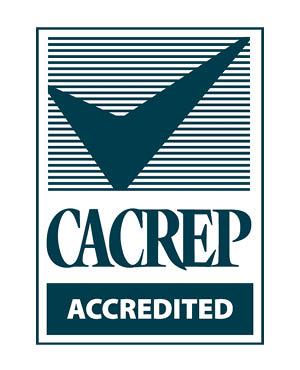
Application Materials
Application Requirements and Deadlines Request Info Apply
About the PMHC—Specialization in Addictions program
Psychology Background Requirement
The Professional Mental Health Counseling and Professional Mental Health Counseling—Specialization in Addictions programs expect applicants to be familiar with the field of psychology as well as basic concepts about society and culture.
This requirement is usually met in one of three ways:
1. An undergraduate major in psychology, plus a course in sociology, cultural anthropology, women’s studies, or ethnic studies.
2. An undergraduate major in sociology, anthropology, women’s or gender studies, or other interdisciplinary social science, plus an introductory psychology course.
3. Faculty assessment of an individual’s counseling foundations based on coursework and experience.
Resources for Students
National Board for Certified Counselors
Oregon Board of Licensed Professional Counselors and Therapists
Washington Licensing Boards
The Addiction Counselor Certification Board of Oregon
American Counseling Association
American Psychological Association
California Board of Behavioral Sciences (Counselor Licensure)
Professional Mental Health Counseling is located in room 326 of Rogers Hall on the Graduate Campus.
MSC: 86
email ctsp@lclark.edu
voice 503-768-6060
fax 503-768-6065
Chair Cort Dorn-Medeiros
Professional Mental Health Counseling
Lewis & Clark
615 S. Palatine Hill Road
Portland OR 97219
